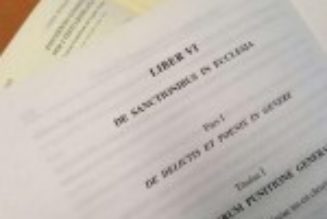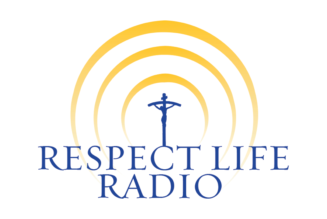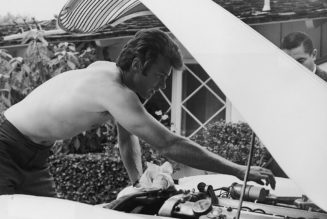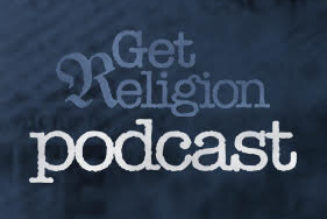, July 2, 2020
 This Sunday’s Gospel (the 14th Sunday of Ordinary Time, Year A) includes some of the most consoling words in Scripture. “Come to me, all you who labor and are burdened, and I will give you rest.”
This Sunday’s Gospel (the 14th Sunday of Ordinary Time, Year A) includes some of the most consoling words in Scripture. “Come to me, all you who labor and are burdened, and I will give you rest.”
Anyone who has had a relationship with Jesus Christ knows exactly what that means. The greatest feeling in the world is not any kind of bodily pleasure, but the supernatural rest of an encounter with Jesus Christ, especially in the sacraments of confession and the Eucharist.
But we also know that Christ’s peace is not an easily won sentimentality, as his next words make clear.
“Take my yoke upon you and learn from me, for I am meek and humble of heart,” he says; “and you will find rest for yourselves. For my yoke is easy, and my burden light.”
Jesus does not come simply bringing peace. He brings a “yoke” and a “burden.” He also expects a “humble heart” — and for us, humility only comes through humiliation.
In other words, Jesus gives us the recipe for peace and rest, but the ingredients are sometimes bitter and they require surrender to the unknown and acceptance of the unpleasant.
The key is to pick the approach to life that Jesus describes and St. Paul names.
Jesus describes the two approaches to life in this Sunday’s Gospel in provocative terms: “I give praise to you, Father, Lord of heaven and earth, for although you have hidden these things from the wise and the learned, you have revealed them to little ones.”
St. Paul puts the same thing a different way in his letter to the Romans “You are not in the flesh; on the contrary, you are in the spirit,” he says. “If you live according to the flesh, you will die, but if by the Spirit you put to death the deeds of the body, you will live.”
What does it mean to live “in the flesh”? It is nicely summed up in Christ’s words to the Apostles who preferred sleep to obedience in the Garden of Gethsemane: “The spirit is willing but the flesh is weak” (Matthew 26:41). Paul lists the works of the flesh to the Galatians, including impurity, strife, jealousy, selfishness and even partisanship.
To “live in the flesh” means to center your life around your passions — for lust, food, drink, money or even for politics and your own opinions.
Things are “hidden” from the wise and learned because they live in the flesh.
Good theology, as St. Anselm put it in the 11th century, is “faith seeking understanding.” The opposite, bad theology would be “Mistrust demanding proof.”
Some very smart people get caught in that trap. They start, perhaps, by valuing the truth above all. They may be skeptics who want to test everything, which is good — but refuse to test their own biases. They may be apologetics experts who embrace the Church enthusiastically — until they discover that the flesh and blood people who make it up are messier than their pristine arguments. Others people become so committed to their own reasoning that they reject Councils and Popes.
And it isn’t just “they.” We each approach new ideas with our own biases, blindnesses, and commitments to a pet theory or ideology, and find it next to impossible to back down.
But the truth is “revealed to the little ones.” Those are the ones who Paul says “live in the spirit” because they are childlike: docile, humble, and open to new truth. That describes us too, I hope.
The extent to which we are willing to be little is the extent to which we will be saved.
When I was editor of the National Catholic Register, author H.W. Crocker III wrote something in a commentary piece that I have never forgotten:
“We few, we happy few, we band of brothers who accept the Church’s teaching on contraception do not, ultimately, do so because of the unchanging tradition of the Church or the argument from natural law or any other argument, however true. Ultimately, we accept the Church’s teaching because we have decided to give without counting the cost.”
That is true for me of contraception and so much more. The best answer I can muster to Jesus’s question, “Will you also go away?” is often Peter’s in the Gospel of John. “Lord, to whom shall we go? You have the words of eternal life, and we have believed, and come to know, that you are the Holy One of God.”
After all, we can never get all that truth on our own. “No one knows the Father except the Son and anyone to whom the Son wishes to reveal him,” says Jesus.
And who is the Son?
In the first reading Zechariah prophecies who he is: “A just savior he is, meek, and riding on an ass, on a colt, the foal of an ass.” But then, “He shall banish the chariot,” says Zechariah, “the warrior’s bow shall be banished. … his dominion shall be from sea to sea.”
Who but a fool would accept a savior who presents himself that way? And whose personal certainties will survive when he strips away every earthly power?
Image: MATEUS 27 2425 Flickr
Tags: 14th Sunday in Ordinary Time Year A, prayer, Sunday Gospel, Sunday Readings
Never miss a post! Subscribe below to our weekly newsletter.









